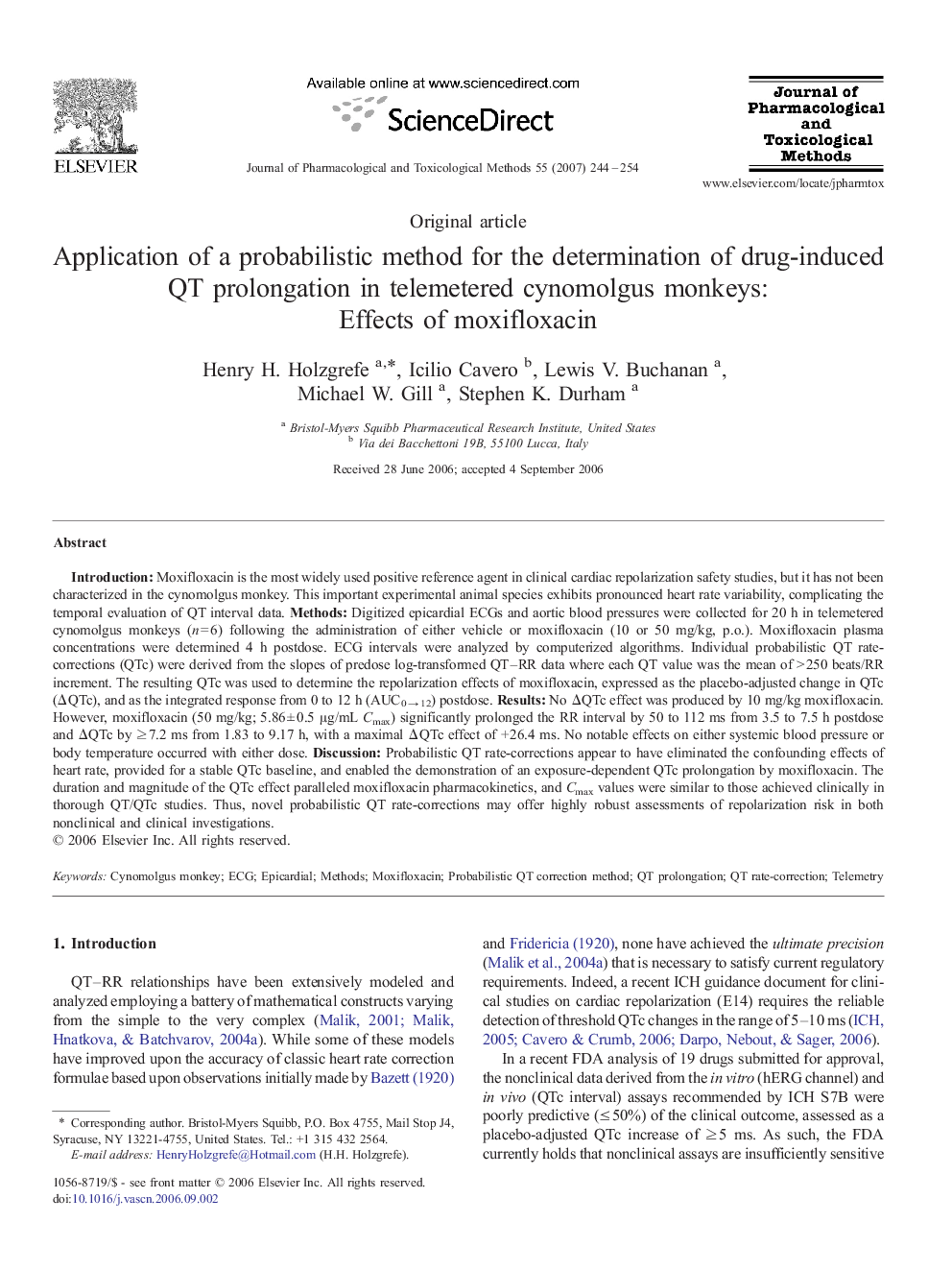| Article ID | Journal | Published Year | Pages | File Type |
|---|---|---|---|---|
| 2550239 | Journal of Pharmacological and Toxicological Methods | 2007 | 11 Pages |
Introduction: Moxifloxacin is the most widely used positive reference agent in clinical cardiac repolarization safety studies, but it has not been characterized in the cynomolgus monkey. This important experimental animal species exhibits pronounced heart rate variability, complicating the temporal evaluation of QT interval data. Methods: Digitized epicardial ECGs and aortic blood pressures were collected for 20 h in telemetered cynomolgus monkeys (n = 6) following the administration of either vehicle or moxifloxacin (10 or 50 mg/kg, p.o.). Moxifloxacin plasma concentrations were determined 4 h postdose. ECG intervals were analyzed by computerized algorithms. Individual probabilistic QT rate-corrections (QTc) were derived from the slopes of predose log-transformed QT–RR data where each QT value was the mean of > 250 beats/RR increment. The resulting QTc was used to determine the repolarization effects of moxifloxacin, expressed as the placebo-adjusted change in QTc (ΔQTc), and as the integrated response from 0 to 12 h (AUC0 → 12) postdose. Results: No ΔQTc effect was produced by 10 mg/kg moxifloxacin. However, moxifloxacin (50 mg/kg; 5.86 ± 0.5 μg/mL Cmax) significantly prolonged the RR interval by 50 to 112 ms from 3.5 to 7.5 h postdose and ΔQTc by ≥ 7.2 ms from 1.83 to 9.17 h, with a maximal ΔQTc effect of + 26.4 ms. No notable effects on either systemic blood pressure or body temperature occurred with either dose. Discussion: Probabilistic QT rate-corrections appear to have eliminated the confounding effects of heart rate, provided for a stable QTc baseline, and enabled the demonstration of an exposure-dependent QTc prolongation by moxifloxacin. The duration and magnitude of the QTc effect paralleled moxifloxacin pharmacokinetics, and Cmax values were similar to those achieved clinically in thorough QT/QTc studies. Thus, novel probabilistic QT rate-corrections may offer highly robust assessments of repolarization risk in both nonclinical and clinical investigations.
